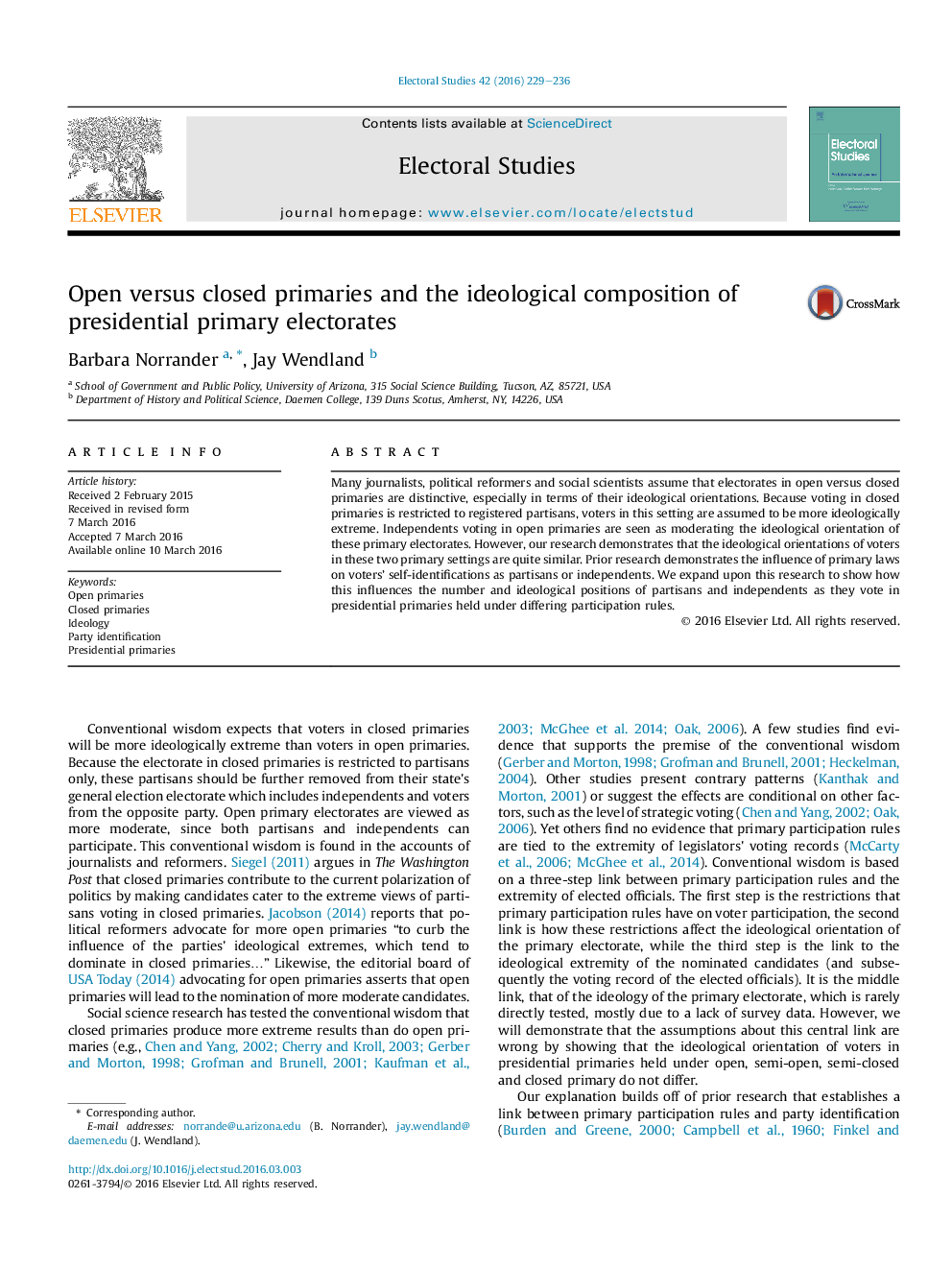| Article ID | Journal | Published Year | Pages | File Type |
|---|---|---|---|---|
| 1051688 | Electoral Studies | 2016 | 8 Pages |
•Past research links primary laws to party identification.•We link primary laws to ideology of voters in presidential primaries.•In open primaries moderate independents offset ideologically extreme partisans.•Closed primaries have a large group of more moderate partisans.•Thus, voters in open versus closed primaries have similar ideological orientations.
Many journalists, political reformers and social scientists assume that electorates in open versus closed primaries are distinctive, especially in terms of their ideological orientations. Because voting in closed primaries is restricted to registered partisans, voters in this setting are assumed to be more ideologically extreme. Independents voting in open primaries are seen as moderating the ideological orientation of these primary electorates. However, our research demonstrates that the ideological orientations of voters in these two primary settings are quite similar. Prior research demonstrates the influence of primary laws on voters’ self-identifications as partisans or independents. We expand upon this research to show how this influences the number and ideological positions of partisans and independents as they vote in presidential primaries held under differing participation rules.
